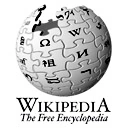Howard Elliott Ashman (May 17, 1950 – March 14, 1991) was an American playwright and lyricist. He collaborated with Alan Menken on several works and is most widely known for several animated feature films for Disney, for which Ashman wrote the lyrics and Menken composed the music. Ashman and Menken began their collaboration with the musical God Bless You, Mr. Rosewater (1979), for which Ashman directed and wrote both book and lyrics. Their next musical, Little Shop of Horrors (1982) for which Ashman again directed and wrote both book and lyrics, became a long-running success and led to a 1986 feature film. The partnership's first Disney film was The Little Mermaid (1989), followed by Beauty and the Beast (1991). After his death, some of Ashman's songs were included in another Disney film, Aladdin (1992).
Early Life[]
Ashman was born in Baltimore, Maryland, the son of Shirley Thelma (née Glass) and Raymond Albert Ashman, an ice cream cone manufacturer. His family was Jewish. Ashman first studied at Boston University and Goddard College (with a stop at Tufts University's Summer Theater) and then went on to achieve his master's degree from Indiana University in 1974.
Career[]
After graduating from Indiana in 1974 he moved to New York and worked as an editor at Grosset & Dunlap. His first two plays, Cause Maggie's Afraid of the Dark and Dreamstuff, were met with mixed reviews. His play The Confirmation was produced in 1977 at Princeton's McCarter Theater and starred Herschel Bernardi. In 1977 he became the artistic director of the WPA Theater in New York. He first worked with Alan Menken on the 1979 musical Kurt Vonnegut's God Bless You, Mr. Rosewater, adapted from Vonnegut's novel of the same name. They also collaborated on Little Shop of Horrors with Ashman as director, lyricist, and librettist, winning the Drama Desk Award for Outstanding Lyrics.
Ashman was director, lyricist and bookwriter for the 1986 Broadway musical Smile (music by Marvin Hamlisch). Also in 1986, Ashman wrote the screenplay for the Frank Oz–directed film adaptation of his musical Little Shop of Horrors, as well as contributing the lyrics for two new songs, "Some Fun Now" and "Mean Green Mother From Outer Space," the latter of which received an Academy Award nomination.
In 1986, Ashman was brought in to write lyrics for a song in Disney's Oliver & Company. While there, he was told about another project that they had been working on for a couple years. The film was The Little Mermaid, Disney's first fairy tale in 30 years. Ashman, along with Alan Menken, wrote all of the songs for the film. Ashman became a driving force during the early years of the Disney Renaissance. He would hold story meetings and said the animation and musical styles were made for each other which is why Disney needed to continue making musical movies. He also made strong choices in casting actors with strong musical theater and acting backgrounds. The Little Mermaid was released in November 1989 and it was an enormous success. Ashman and Menken received two Golden Globe nominations and three Academy Award nominations including two for "Kiss The Girl" and "Under The Sea", for Ashman won both awards for the latter.
In 1988, while working on The Little Mermaid, Ashman pitched to Disney the idea of an animated musical adaptation of Aladdin. After he wrote a group of songs with partner Alan Menken and a film treatment, a screenplay was written by Linda Woolverton, who had worked on Beauty and the Beast. Then directors John Musker and Ron Clements joined the production. The story underwent many changes and some elements of the original treatment were dropped. Out of the 16 songs written for Aladdin, three of Howard's songs ended up in the finished film, which was released after his death.
During early production of Aladdin, Ashman and Menken were approached to help reinvigorate and save the production of Beauty and the Beast, which was going nowhere as a non-musical. Ashman, wishing to focus on Aladdin and his health, reluctantly agreed. It was at this time that his health began to decline due to his illness. Regardless, he completed lyrical work on Beauty and the Beast before succumbing to AIDS. The film was released mere months after his death and is dedicated to him.
Along with Menken, Ashman was the co-recipient of two Grammy Awards, two Golden Globe Awards and two Academy Awards. Upon receiving his second Academy Award posthumously, William P. "Bill" Lauch, his partner, accepted the award in his stead.
Illness and death[]
On the night of the 62nd Academy Awards, Ashman told Menken that they needed to talk when they got back to New York, where he revealed to Menken that he was HIV positive. He had been diagnosed in 1988, midway through the making of The Little Mermaid. During the making of Beauty and the Beast, the Disney animators were flown to work with Ashman at his home in Fishkill, New York. There they discovered that he was seriously ill. He grew weaker but he remained productive and continued to write songs. After the first screening for Beauty and the Beast on March 10, 1991, the animators visited Ashman in the hospital. He weighed 80 pounds, had lost his sight, and could barely speak. The animators and producer Don Hahn told him that the film was incredibly well received by the press. On March 14, Ashman, age 40, died from complications from AIDS, in New York City. Beauty and the Beast is dedicated "To our friend Howard, who gave a mermaid her voice and a beast his soul, we will be forever grateful. Howard Ashman 1950–1991." Ashman was survived by his partner Bill Lauch, his sister Sarah Ashman-Gillespie, and his mother Shirley Thelma Glass. He is buried in Oheb Shalom Cemetery in Baltimore, Maryland.
| This page uses Creative Commons Licensed content from Wikipedia (view authors). |  |
